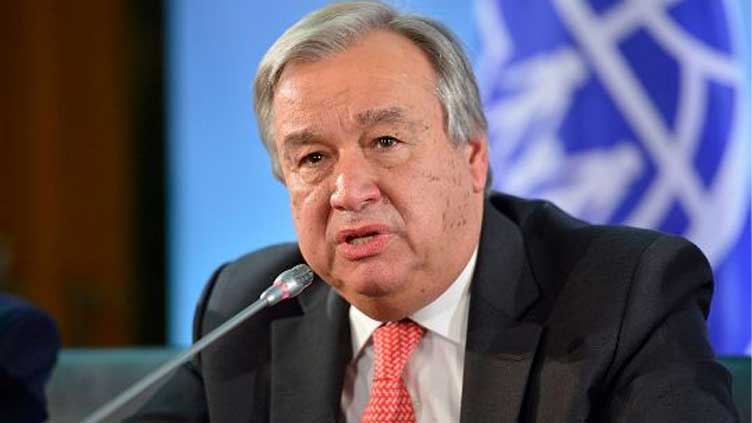UN chief warns of growing threat to environmental journalists

World
Antonio highlights increasing danger for environmental journalists on World Press Freedom Day
(Web Desk) – Marking World Press Freedom Day, UN Secretary-General Antonio Guterres has highlighted an uptick in violence faced by journalists covering environmental issues, which has made the profession increasingly dangerous.
In a message released on Friday, the UN chief said journalists and media workers “have a key role in informing and educating” the public about the world’s current environmental and climate emergency which stands as a threat to future generations.
He emphasised that through this work, people can gain a greater understanding of environmental factors affecting the world. This understanding empowers them to advocate for change. However, based on a recent UN Educational, Scientific and Cultural Organization (UNESCO) report, journalists, especially environmental journalists, face violent attacks, and even death, for simply doing their job.
“Dozens of journalists covering illegal mining, logging, poaching, and other environmental issues have been killed in recent decades,” Guterres noted. But, “In the vast majority of cases, no one has been held to account.”
Analysing the violence environmental journalists face, UNESCO’s report found that journalists and news outlets reporting on environmental issues faced about 750 attacks in the past 15 years, the secretary-general noted.
In an interview, Guilherme Canela, UNESCO’s Chief of Freedom of Expression and Safety of Journalists, stated that the report found that 70 per cent of journalists engaged in environmental reporting encountered at least one form of violence, with a quarter of the surveyed journalists facing legal attacks.
Canela said that over the past 50 years, 44 journalists covering environmental stories were killed.
He stressed the importance of journalists as observers of conflict zones, providing life-saving information for civilian populations affected by these conflicts.
Canela emphasised, “UNESCO is sounding the alarm that we need to take care of the protection of those journalists covering environmental issues, because raising awareness about what’s going on in the environment and holding powerful actors accountable is absolutely essential to face the current environmental challenges that the planet is having.”
In a statement for World Press Freedom Day, Volker Turk, UN High Commissioner for Human Rights, said losing a journalist means losing a human rights defender, and that the world needs “independent, ethical, and quality journalism perhaps now more than ever.”
Turk stressed the need for stronger commitments from governments and employers to protect journalists, especially environmental journalists, ensuring safer work environments and the right to work without attacks.
The secretary-general also recognised journalists’ “invaluable” work and their efforts to keep the public informed and engaged. He called on governments, private sectors, and civil societies to recommit to protecting press freedom and the rights of journalists and media professionals globally.


